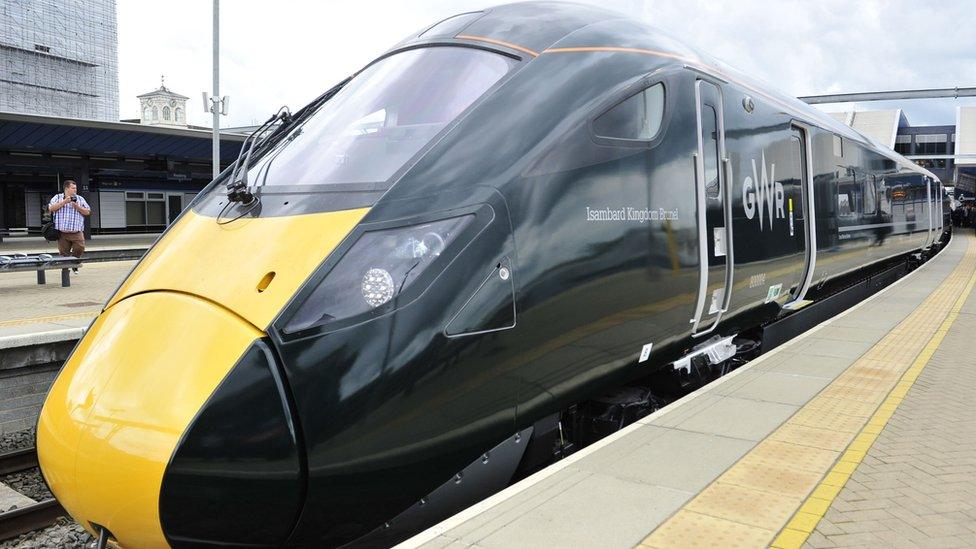Trains reintroduced after safety checks prompted by cracks
- Published
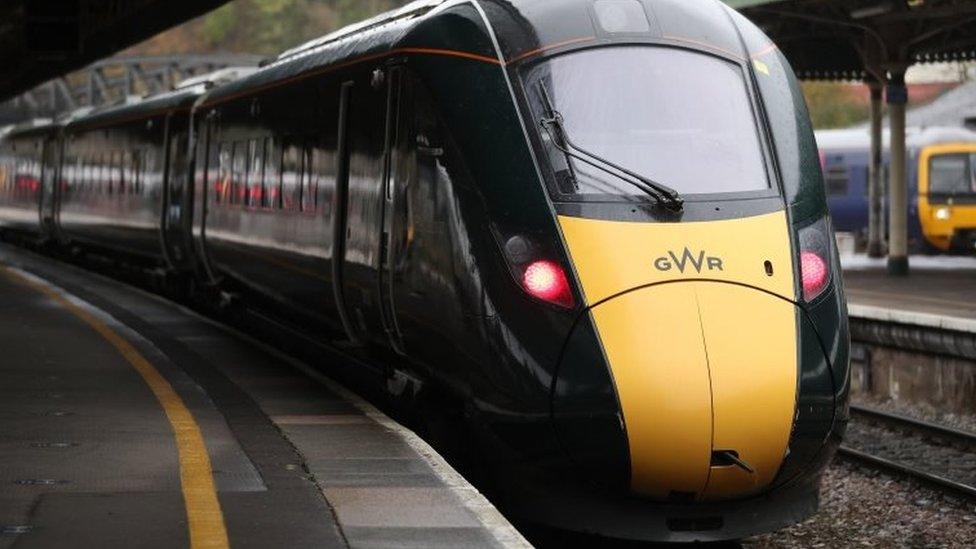
Trains taken out of service after cracks were found are to be reintroduced following "rigorous safety checks", the Rail Delivery Group says.
Some of the Hitachi Class 800 trains have cracks on the lifting plate, but as this is used for maintenance and not passenger journeys, regulators have agreed they are safe to return.
There have been cancellations since 182 trains were pulled on Saturday.
The rail minister warned travellers to expect disruption for "some time".
The Rail Delivery Group said Great Western Railway and London North Eastern Railway (LNER) will now ramp up services, but timetables will still be affected.
Travellers are being advised to continue to check with their operator before they travel.
Trains with more severe cracks will remain with Hitachi for repair and, in the longer term, the manufacturer says all trains with cracks will be brought back to be repaired.
Andrew Barr, CEO of Hitachi Rail, apologised for the disruption and told the BBC: "Over the coming days we'll see more trains available for service as we get ready for the service on Monday morning."
Asked if he expected the majority of trains to be back next week, he said: "It is still early days, we're still undertaking those inspections, but we're hopeful that we can ensure the maximum number of trains are available for service."
He said it was "too early to say" how much the disruption and repair work caused by pulling 182 trains out of service had cost.
In a statement, the Rail Delivery Group said Hitachi Rail, train operators and the government have agreed a "service recovery plan" to reintroduce more Class 800 and 385 trains after they were taken out of service on Saturday.
But it said trains on some routes may be less frequent than usual and train availability could vary.
The industry has put in place "suitable criteria for the trains to meet before they can re-enter service", the Rail Delivery Group said.
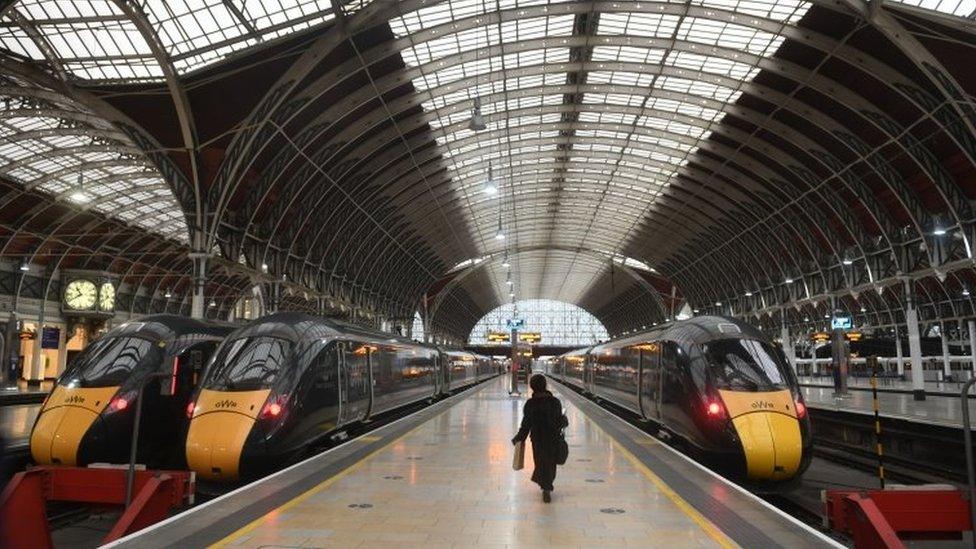
Great Western Railway services in and out of London Paddington were cancelled on Saturday
Rail minister Chris Heaton-Harris said he welcomed the news that "many trains" can return following safety checks.
"Trains should begin to return to service after further inspections have been carried out, helping to safely restore the reliable and punctual services on GWR and LNER that passengers deserve," he said.
"Safety is our absolute focus, which is why Hitachi will carry out a comprehensive daily testing regime on affected trains."
He said the next step would be for Hitachi to present its long-term repair plan for the fleet, which he expects "shortly".
"Whilst this long-term fix can partly be incorporated into the regular service pattern for these trains, we do expect disruption to services for some time to come, but hope passengers understand this work is essential to ensure these issues do not occur again," Mr Heaton-Harris said.
Great Western Railway, external is still advising customers not to travel, saying disruption is "likely to continue for some time".
"We have had to cancel many of our long-distance services and expect disruption to journeys to continue for the next few days," it said.
Most GWR services from London Paddington were cancelled on Thursday, external.
East Coast mainline company LNER, external said it was running a reduced timetable "which may change at short notice".
Its website is reporting delays on 20 services, including journeys between London Kings Cross and Edinburgh, on Thursday.
In Scotland, LNER is not running any trains between Edinburgh and Aberdeen or Inverness.
It said its tickets would be accepted with ScotRail and Transpennine Express until Friday.
Hull Trains and TransPennine Express were also affected by the problem with Hitachi Class 800 trains, but both operators said on Saturday afternoon their fleet could return after checks.

The Hitachi Class 800 train
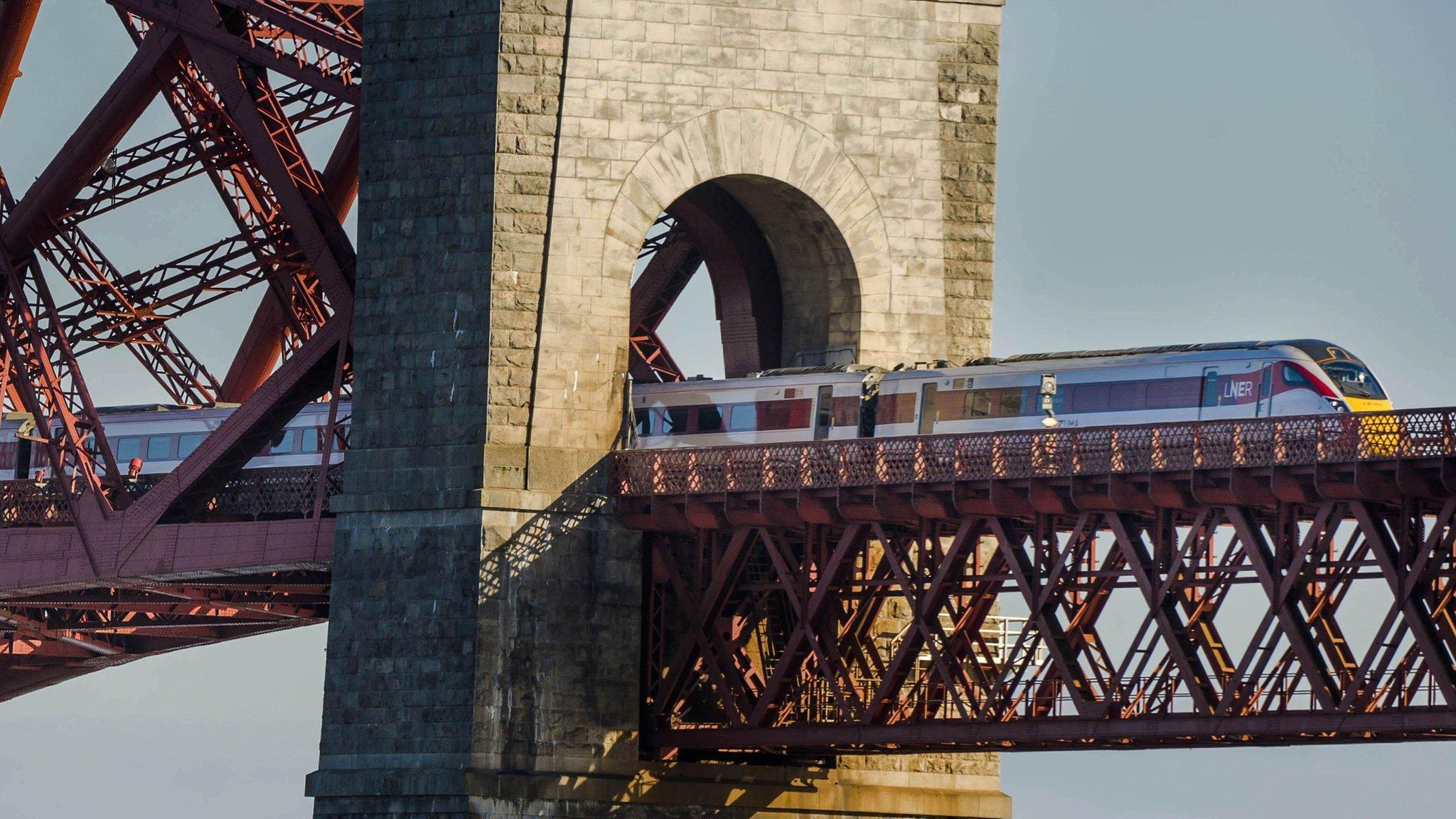
The Class 800 is electric - but almost half have a diesel engine enabling them to operate on lines that have not been electrified
Formal orders for the trains were made in 2012 and 2013 at a cost of around £5.7bn for a 27.5 year programme, including maintenance
The Class 800 began regular service for Great Western Railway in October 2017 - but an embarrassing start saw air conditioning units leak on to passengers on the first Class 800 journey from London to Bristol
In May 2019, they began service on the East Coast Main Line, with operator LNER branding the train Azuma - or "east" in Japanese
They were hailed by operators as helping to increase capacity and reduce journey times
The trains were assembled at Hitachi's plant in Newton Aycliffe in County Durham

Additional reporting by Caroline Davies
Related topics
- Published9 May 2021

- Published27 April 2021
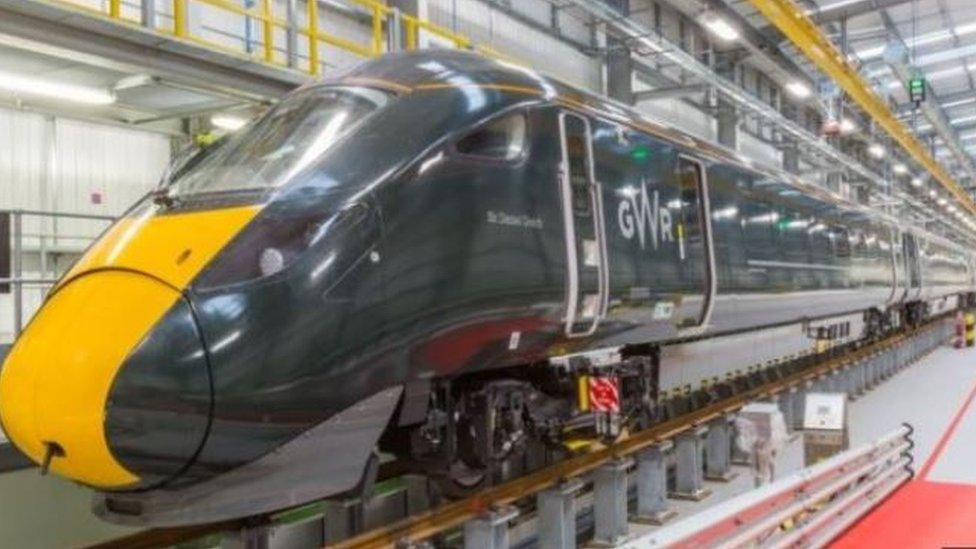
- Published16 October 2017

- Published16 October 2017
